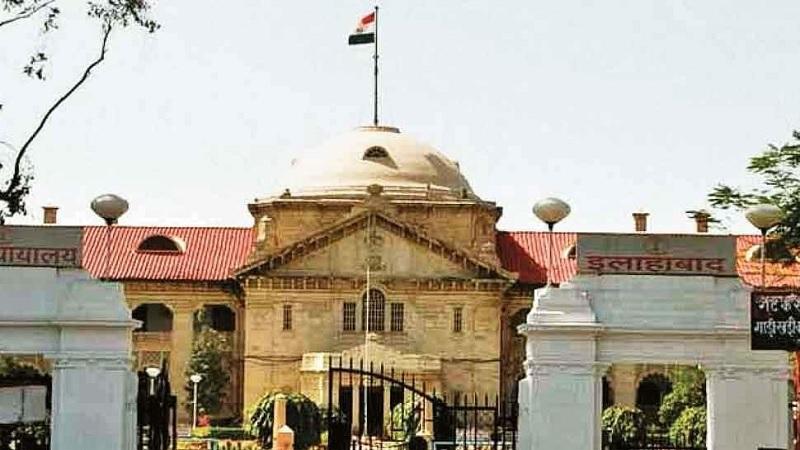Allahabad HC Quashes NSA Detention Due to MHA’s Delay in Deciding Detenue’s Representation

Image Courtesy:livelaw.in
The Allahabad High Court has quashed a detention order passed under National Security Act (NSA) due to disproportionate delay caused by the Central government in considering the representation sent by the detenue. The Division bench of Justices Saroj Yadav and Ramesh Sinha refused to interfere with the subjective decision of the detaining authority in passing the detention order. However, on the sole basis of the delay caused by the Union Ministry of Home Affairs (MHA) in processing and further, communicating the rejection of the representation to the detenue, the order was quashed.
The petitioner, Mohd. Faiyyaz Mansuri, was detained under the NSA in September 2020 by an order passed by District Magistrate, Lakhimpur Kheri. The state government has repeatedly extended the detention period since then. The allegation against the petitioner is that he posted a provocative post on his Facebook account attacking Hindu religious sentiments and threatened to kill and disturb peace.
The post allegedly read, "Babri maszid ek din dubara banai Jayegi, jis tarah Turki ki Sofiya maszid banai gai thi." One Sagar Kapoor filed a complaint and FIR was lodged and during investigation section 295A of IPC was added. Seeing the post, some Hindu members of Hindu organisations gathered and started raising slogans and blocked the road because of which peace was disturbed and the crowd had to be disbursed by the police.
The reason for detention was also that the petitioner had filed for bail second time, as the first one was rejected. It was apprehended by the detaining authority that there was a possibility that the petitioner if released on bail, shall again indulge in similar crime, which shall be prejudicial to the maintenance of the public order.
After detention, the petitioner was informed that he can make representation to the detaining authority and the State Government as well as to the Advisory Board as also the Central government. Accordingly, he made his representations to the Advisory Board and the Central government.
The petitioner’s counsel argued that other people named in the FIR, who commented on the derogatory post allegedly made by the petitioner have not been arrested which indicates that the situation was not as serious as to invoke NSA. He argued that subjective satisfaction of the detaining authority is vitiated as the impugned order of detention has been passed on irrelevant facts which have been considered in the impugned order, and there was no public order situation but it may be only a normal law and order situation. He also submitted that the first extension order passed in December 2020 was not supplied to the petitioner and his valuable right under Article 22(5) of the Constitution has been infringed.
He further argued that neither the detention order nor the subsequent extension order specify the period for which detention has been ordered and hence, both are illegal and liable to be quashed. Further, he submitted there was undue delay in the disposal of the representation of the petitioner on the part of the Central Government. He argued that delay and latches committed by the Central Government in considering the petitioner’s representation has infringed fundamental rights of the detenue enshrined under Articles 21 and 22 (5) of the Constitution.
Detention justified
The court, commenting on the grounds for preventive detention, stated that subjective satisfaction of a detaining authority to detain a person or not, is not open to objective assessment by a Court.
“A Court is not a proper forum to scrutinize the merits of administrative decision to detain a person. The Court cannot substitute its own satisfaction for that of the authority concerned and decide whether its satisfaction was reasonable or proper, or whether in the circumstances of the matter, the person concerned should have been detained or not… While saying so, this Court does not sit in appeal over decision of detaining authority and cannot substitute its own opinion over that of detaining authority when grounds of detention are precise, pertinent, proximate and relevant,” the court observed.
The court conformed to the grounds of detention and stated, “We are of the considered view that the activities relied upon by the Detaining Authority to come to the conclusion that in order to prevent the petitioner from acting in any manner prejudicial to the maintenance of public order, it became necessary to pass order for detention of the detenue/petitioner, cannot be said to be mere disturbance of law and order”.
“The posting of the provocative message through his Facebook wall, as referred to herein-above, strikes at the root of the State’s authority and is directly connected to ‘public order’. This act of the detenue/petitioner was not directed against a single individual, but against the public at large having the effect of disturbing the even tempo of life of the community and thus breaching the ‘public order’,” the court added.
The court concluded that the petitioner’s activities fall within the contours of the concept of ‘public order’ and the Detaining Authority was justified in law in passing the impugned order of detention.
Validity of order
Further, the petitioner’s argument that he was not supplied with first extension order, was not entertained by the court, since he was supplied with a copy eventually in February 2021. Further, his argument that period of detention was not mentioned in the order was also rejected by the court relying upon precedents.
The court then considered the argument that the Central government delayed in deciding the petitioner’s representation. The court was not satisfied with the explanation provided by the Ministry fo Home Affairs and deemed it to be at fault for causing delay. The court found that certain day to day explanations were not provided by the Ministry for the delay. Further the rejection was also communicated 4 days later to the petitioner, that too via wireless message. The court deemed this to be a disproportionate delay.
The court decided that on this ground alone, the detention order is liable to be quashed and allowed the petition. The court directed that the petitioner be released forthwith.
The complete order may be read here:
Get the latest reports & analysis with people's perspective on Protests, movements & deep analytical videos, discussions of the current affairs in your Telegram app. Subscribe to NewsClick's Telegram channel & get Real-Time updates on stories, as they get published on our website.
























